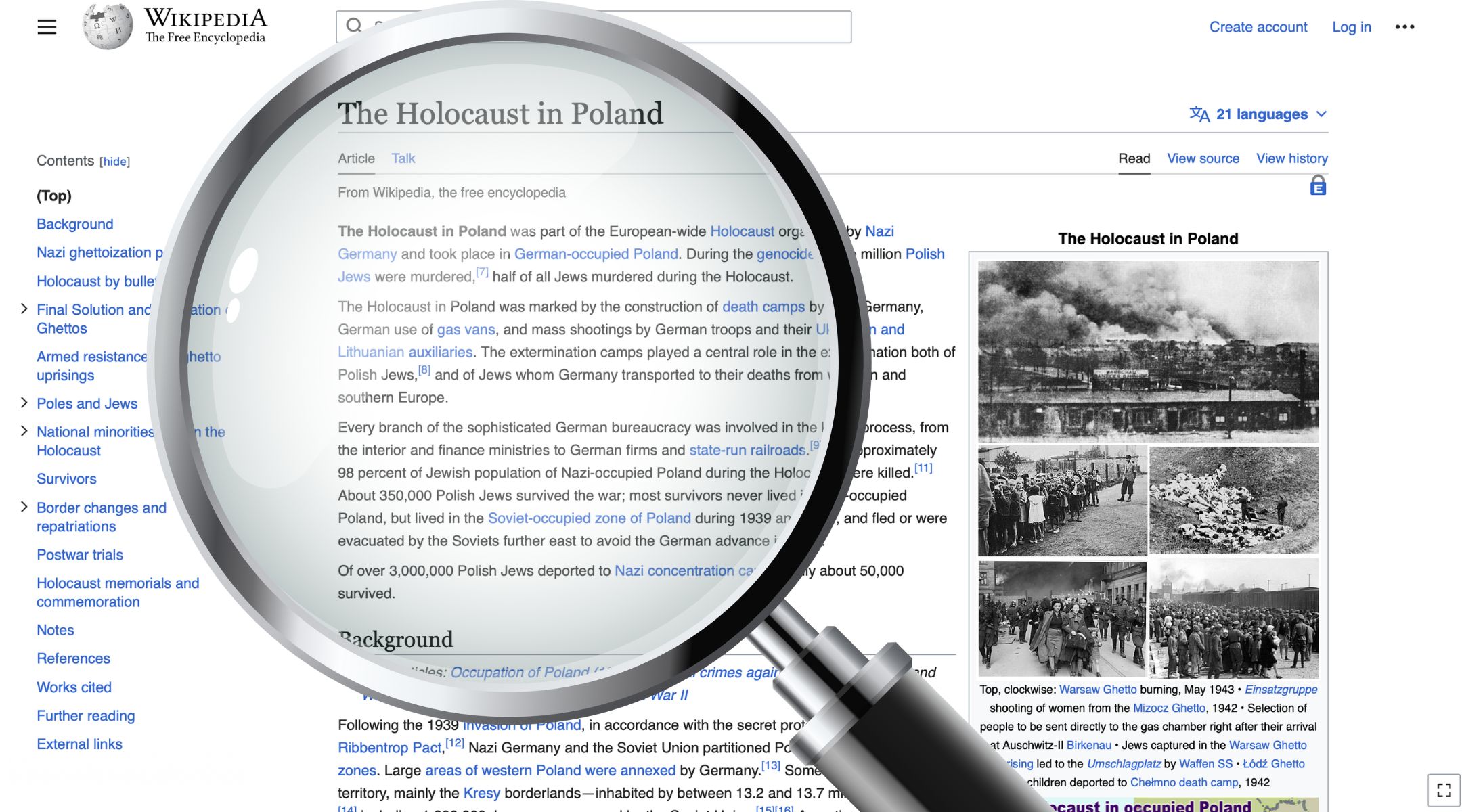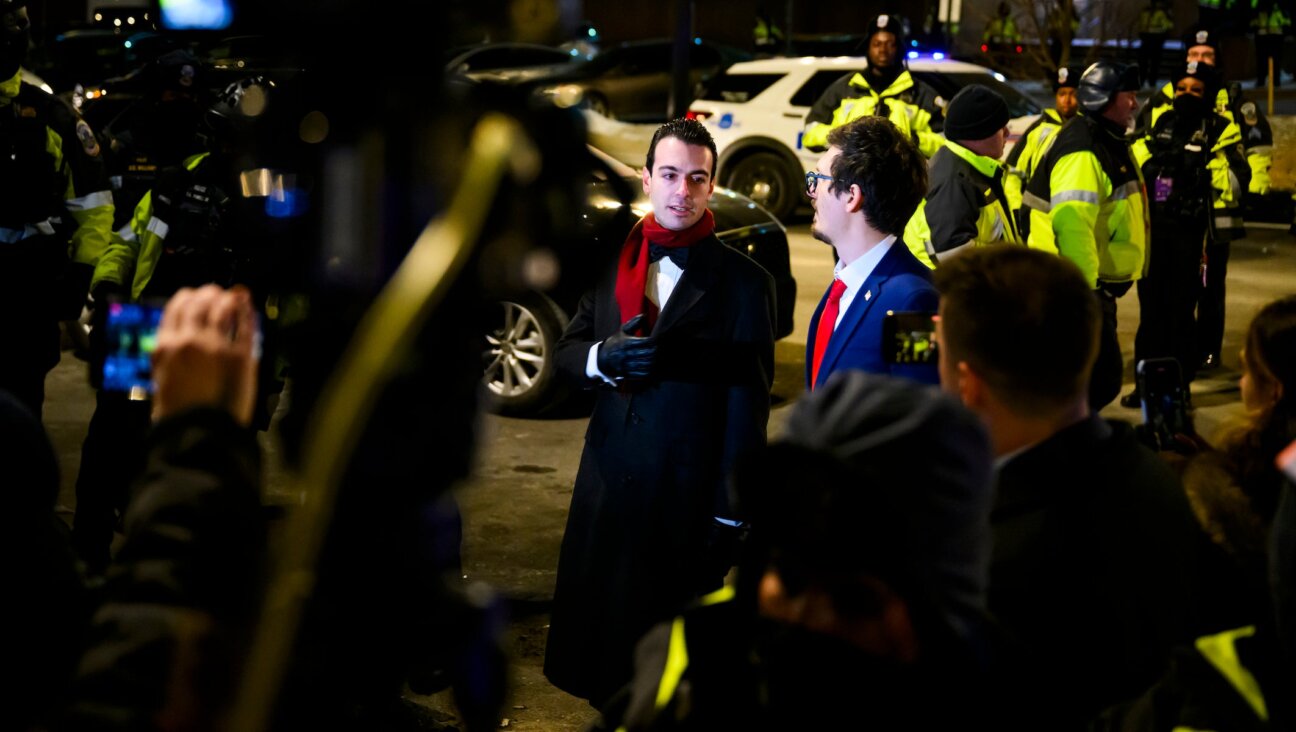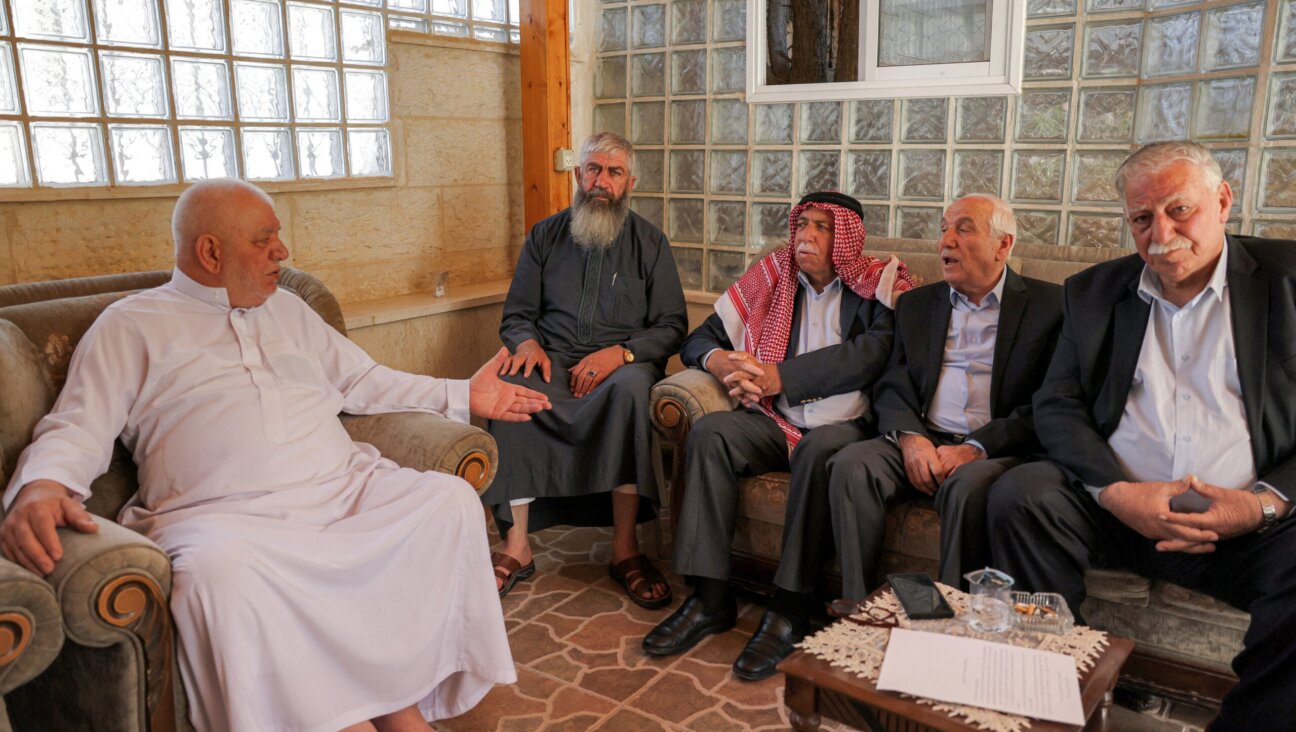Wikipedia disciplines editors in Holocaust distortion dispute but sidesteps debate over Polish complicity
The online encyclopedia didn’t take a position on the underlying dispute over Polish antisemitism and complicity with the Nazis, instead focused on whether editors adhered to the community’s code of conduct

An academic paper found that a dedicated group has for some 15 years manipulated Wikipedia in ways that lay blame for the Holocaust on Jews and absolve Poland of almost any responsibility for its record of antisemitism. (JTA illustration)
(JTA) — Wikipedia has banned three editors from working on articles related to Jewish history in Poland during World War II, in a bid to resolve editing disputes and safeguard its credibility.
But the online encyclopedia stopped short of taking more aggressive action in response to allegations of widespread Holocaust distortion on the platform.
The decision, handed down Saturday, concludes more than two months of deliberation by Wikipedia’s Arbitration Committee, which acts as Supreme Court over the community of volunteers who edit the website.
The Arbitration Committee had opened an investigation in response to an unprecedented academic study concluding that a group of editors had gamed Wikipedia’s rules to introduce content that absolves Poland of blame for antisemitism and Jewish suffering during the Holocaust, in line with the ultranationalist view prevailing in the country.
In keeping with Wikipedia’s accountability framework and to the dismay of the study’s authors, the committee didn’t take a position on the underlying dispute over Polish antisemitism and complicity with the Nazis. The committee instead concluded that then editors did not adhere to the community’s code of conduct.
The committee’s conclusion “entirely missed the mark,” said Shira Klein, a history professor at Chapman University whose study, written with University of Ottawa historian Jan Grabowski, triggered the investigation.
Klein said that by avoiding the issue of historical truth and focusing on civility, Wikipedia sent a clear message: “There’s no problem with falsifying the past; just be nice about it.”
The ruling comes amid a flare-up of attention to Poland’s insistence on a narrative of innocence during its occupation by Nazi Germany, thanks to comments made by Israeli pop star Noa Kirel following her third-place finish in the Eurovision song contest.
Kirel told Israeli media that she considered it a “victory” to have been awarded the maximum number of votes by Poland given that much of her family on her father’s side had been murdered in Auschwitz. Her comments proved explosive in Poland, where officials and media figures argued that Poland was not to blame for what happened to her family and that Polish people suffered much the same as Jewish victims of the Nazi regime.
Those ideas are baked into Polish law, which since 2018 has criminalized accusing Poland of complicity with the Nazi regime. Klein and Grabowski said they identified a set of Wikipedia editors who are propagating the same ideas on the site.
A majority of the 12 members serving on Wikipedia’s Arbitration Committee decided against a complete ban against an editor known as Volunteer Marek, who has been accused of skewing the historical record by pushing a Polish ultranationalist agenda, despite a finding of repeated conduct violations.
Instead, Volunteer Marek, and another editor facing similar allegations, are no longer allowed to edit articles on Jewish-Polish history during World War II. A third editor, who sought to correct the distortions, was also barred from the topic area over uncivil conduct. All three can appeal their bans in a year.
In another measure, the decision creates a higher standard for the reintroduction of fringe sources in articles on the topic after they had been removed by anyone, in the hope of addressing the back-and-forth editing battles that can take place.
For Klein, the problem is not the committee itself, but rather that Wikipedia doesn’t have what she considers an appropriate mechanism to address propaganda efforts. She said consulting professional historians should be part of the solution.
“There is a systemic problem here that goes way beyond the distortion of Holocaust history,” Klein said. “This is the seventh-most viewed site in the world, yet the safeguards Wikipedia has in place for battling disinformation are scarily ineffective. If it’s true for the history of the Holocaust, it is probably true for other cases we have yet to discover. With ChatGPT amplifying Wikipedia on an unprecedented scale, this new failure is all the more worrying.”
This article originally appeared on JTA.org.























